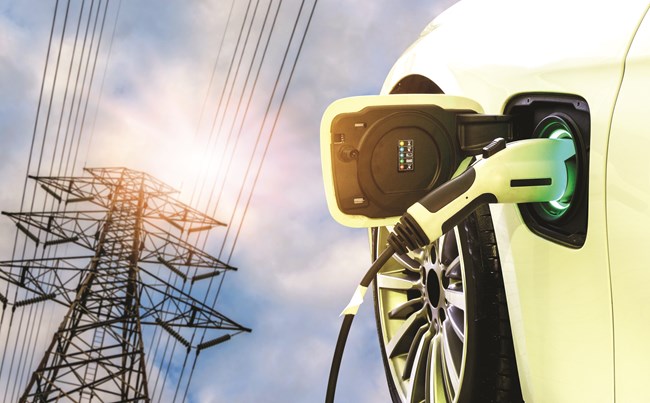We use cookies to ensure that we give you the best experience on our website. If you continue without changing your settings, we will assume that you are happy to receive all cookies on the Business Car website. However, if you would like to, you can change your cookies at any time

The start point for the best source of fleet information |
Collaboration needed for an electric future
Date: 29 March 2019 | Author: Sean Keywood

More communication between fleets and electricity companies is needed to help drive the adoption of electric vehicles (EVs), according to a new report.
Arming the Fleet - Accelerating Businesses Scale Adoption of EVs also argues that fleets are not being considered adequately in the current EV debate, and that a clear, direct policy is needed to encourage them to electrify.
The report by Pixie Energy, a subsidy of research company Cornwall Insight Group, says these challenges will need to be overcome before fleets adopt EVs on a larger scale.
It says the fleet industry and the power sector need a mutual understanding of key objectives and opportunities for collaboration, and recommends driving cross-sector engagement through the creation of a forum, immediate policy action, and the building of 'innovation bridges' to make fleets aware of electricity industry developments.
The report says that while fleets are expected to switch to EVs during the next decade at a faster rate than the wider transport market, due to greater available resources and cost-parity achieved at an earlier date, the government's Road to Zero strategy features few policies that are fleet-focused.
Adjacent to this, it says that as fleets electrify, they will by necessity become part of the electricity industry, with which they have previously had minimal engagement.
The report says there are already examples of current fleet management practices being out of step with electrification, such as conventional fuel cards being incompatible with EV charging points, and it argues that action should be taken to correct this.
By the same token, while electricity firms are proceeding with innovations such as V2X charging - allowing a bi-directional power flow between EVs and the grid - the report says this requires foresighted consideration of fleets' future needs, and says it is by no means obvious this is happening.
The report argues that while survey data has shown fleets expect significant electrification during the next decade, there will need to be major and previously unseen collaboration with the energy sector and others for this to happen.
The report states: "The fleet industry needs to engage with the government, electricity industry, charge point providers and EV experts in order to identify the policy, infrastructure and operational challenges facing fleet electrification.
"This will provide a better understanding of the options to overcome the issues, a means to capitalise on opportunities and a way to address the lack of fleet policies in the Road to Zero."
According to the report, there are several ways this could be achieved.
"At the highest level, organisations discussing the Road to Zero should invite fleet stakeholders to participate," it says. "Similarly, fleet conferences that discuss the future of the industry must fix electrification at the top of the agenda and invite experts from the electricity industry to provide their perspective.
"The most direct form of engagement between all stakeholders will be through a dedicated forum. This would bring together fleet stakeholders, distribution network operators, government, charge point providers and EV experts to exclusively focus on the challenge of fleet electrification.
"This industry-led forum could provide feed-in to government policy to help develop fleet policy measures that enable fleet electrification to progress."
The report was written by Pixie Energy analyst Tom Lusher, who said: "Early electrification of the fleet network could accelerate the achievement of the government's objectives.
"However, the EV policy debate thus far has paid inadequate attention to the interest of the fleet industry, with a lack of a clear policy and direction directly related to how fleets are going to be electrified.
"This is hindering fleet managers achieving large-scale EV adoption. This is further exacerbated by the understandable but limited engagement between the fleet industry and the power sector."
Lusher said that there were significant opportunities for a positive impact on both the fleet and energy sectors, and that there was an opportunity for fleets to move EVs from an 'innovative niche' to a serious business proposition with significant environmental and financial benefits.
He said: "If properly supported, fleets could lead the way on EV roll-out, but to be able to do this there needs to be a fundamental shift in the thinking of all parties involved."











